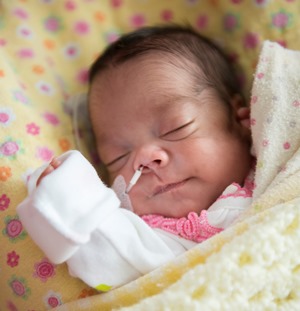BORN Ontario: Children's Hospital of Eastern Ontario
"I think we have some of the best data in the world in Canada, particularly in Ottawa.""This is an investment by the Ontario government in a program that has contributed to the welfare [of babies] in Ontario and, as a benefit, will be able to help countries around the world."
"We are using metabolic fingerprints -- unique patterns in specific molecules found int he blood -- to help estimate gestational age."
Dr. Kumanan Wilson, research chair, public health innovation, Ottawa Hospital Research Unit
"One of the things that drew us to the project was the opportunity to learn how we could implement similar screening -to Ontario's] in the kinds of places the Gates Foundation was involved in, where there may also be the opportunity to help these kinds who are affected."
Dr. Pranesh Chakraborty, Newborn Screening Ontario
 |
| Ottawa Methods Centre, CHEO |
The health outcomes of babies in developing countries around the world is on the cusp of being immensely improved as a result of studies and analyses of blood samples routinely taken from newborns in the province of Ontario, analyzed at the Children's Hospital of Eastern Ontario. Funded with a million-dollar grant from the Gates Foundation, a research program is set to aid in identifying the gestational age of low-resource countries newborns.
This, in turn will aid in undertaking public health measure in the prevention of pre-term births, the prevalence of which is considered an urgent international health challenge for the international community. Data gained from blood tests performed on each newborn in Ontario, stored at BORN (Better Outcomes Registry and Network) Ontario, situated at CHEO for public health innovation will now be seeing its endeavours bearing fruit abroad where it is sorely needed.
Blood routinely collected to enable screening of newborns for illnesses that can then be treated with swift intervention served its own vital interests in screening that blood derived from 140,000 newborns in the province annually. Data derived from testing the blood becomes part of the invaluable data bank. With the use of that data, Dr. Wilson, along with Dr. Steve Hawken from The Ontario Hospital and University of Ottawa succeeded in creating an algorithm to determine gerstational age of babies based on newborn blood collection data.
This vital work of developing and validating their purpose-built algorithm saw recent publication in The American Journal of Obstetrics and Gynecology, and EBioMedicine medical journals. Being tested using newborn data from Bangladesh, Zambia, China and the Philippines, the algorithim is expected to bring results enabling the medical community to reduce pre-term birth and improve newborn health outcomes.
Plans are underway to extend the testing to sub-Saharan Africa and South Asia, enabled by the new funding from the Gates Foundation. Blood taken from newborns in addition to determining gestational age, will be tested for congenital hypothyroidism and sickle0-cell disease, among other treatable diseases. Dr. Chakraborty has been brought into the project along with other researchers from Stanford University.
Knowledge of gestational age at the time of birth is important for distinguishing the preterm from the small-for-gestational age (SGA) infant, whose medical needs and expectations for achieving significant development milestones may be different. Reliable gestational age estimates are also useful for quantifying population burdens of preterm birth, which can facilitate appropriate allocation of resources to hospital centres and regions of greatest need. In many low-income and middle-income countries, maternal access to prenatal care, in particular to ultrasound dating services, is limited and imprecise measures, such as last menstrual period, fundal height, or examination of the newborn are relied on for gestational age estimation.1–3 Given that gestational dating based on knowledge of last menstrual period is frequently unreliable4–6 and postnatal physical examinations are subject to variability based on subjective scoring and poor performance in extreme preterm and SGA infants,7 8 new methods of providing gestational age estimates at the time of birth are required. This need has been recognised by organisations who have sought to improve data on preterm birth9 10 and also develop new ways to measure gestational age.
The National Center for Biotechnology Information
| Dr Kumanan Wilson, left, and Dr. Pranesh Chakraborty are part of a study to analyze data newborns' blood to better understand pre-term birth around the world. |
Labels: Bioscience, Childbirth, Health, Medicine Child Welfare, Research

0 Comments:
Post a Comment
<< Home